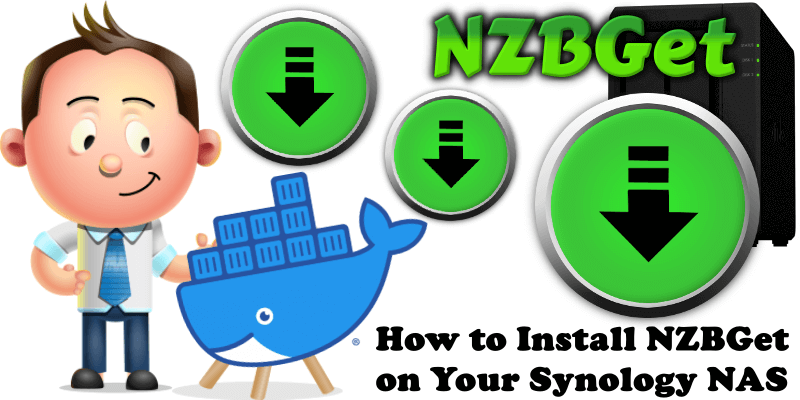
NZBGet is a lightweight, open-source Usenet downloading client designed for efficiently retrieving binary files from Usenet newsgroups. It’s a popular tool among users who access Usenet for downloading content like movies, music, software, or other large files. Unlike some other Usenet clients, NZBGet is known for its speed, low resource usage, and cross-platform compatibility, running on Windows, macOS, Linux, and even devices like Synology NAS, UGREEN NAS etc. The program works by processing NZB files, which are essentially index files that contain information about where specific content is located on Usenet servers. In this step by step guide I will show you how to install NZBGet on your Synology NAS using Docker.
STEP 1
Please Support My work by Making a Donation.
STEP 2
Install Container Manager via Synology “Package Center”. If you run an older DSM version (under 7.2), search for Docker instead of Container Manager.
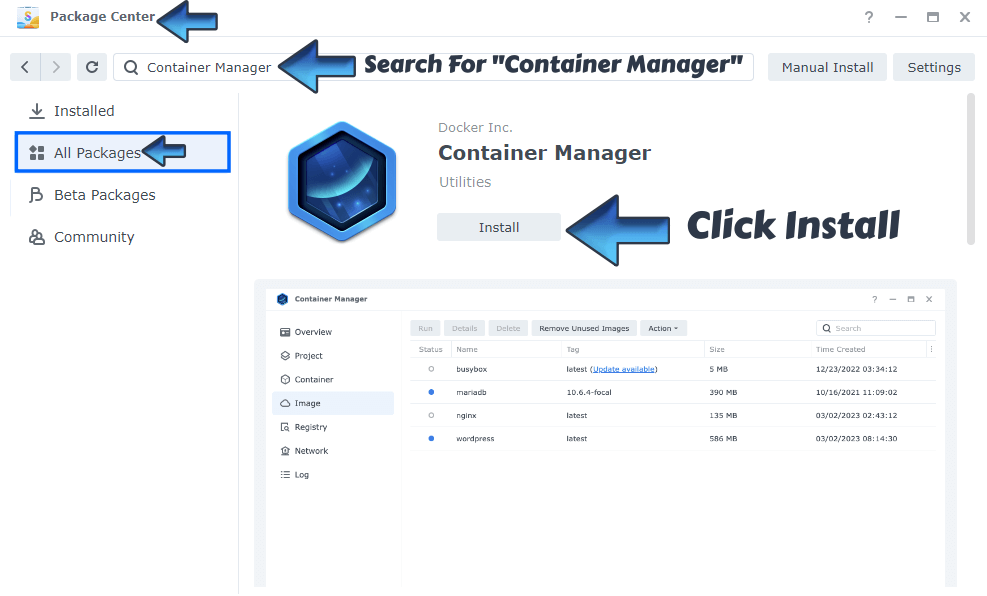
STEP 3
Go to File Station and open the docker folder. Inside the docker folder, create one new folder and name it nzbget. Follow the instructions in the image below.
Note: Be careful to enter only lowercase, not uppercase letters.
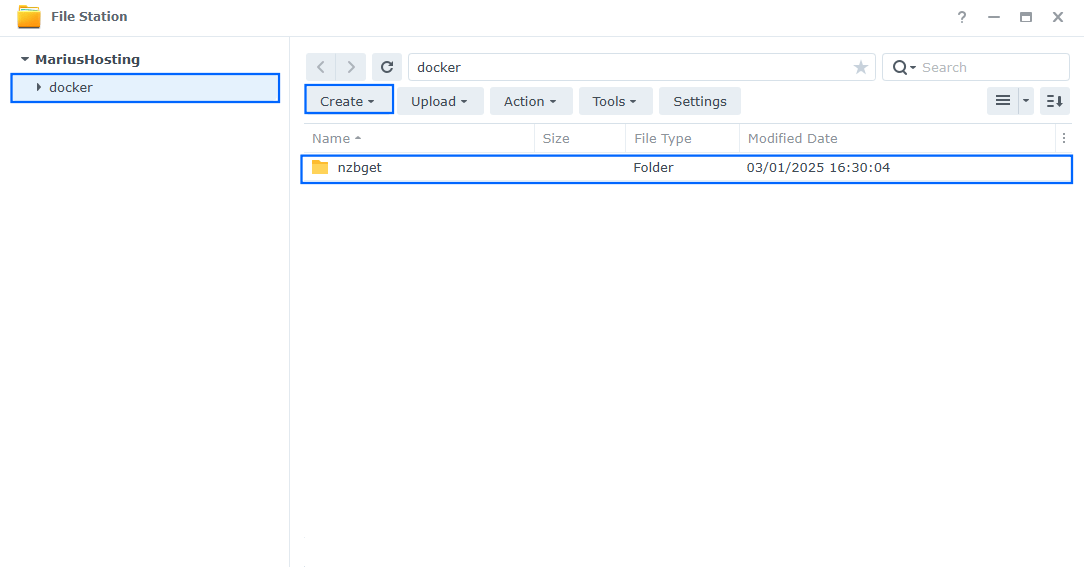
STEP 4
Now create two new folders inside the nzbget folder that you have previously created at STEP 3, and name them data and downloads. Follow the instructions in the image below.
Note: Be careful to enter only lowercase, not uppercase letters.
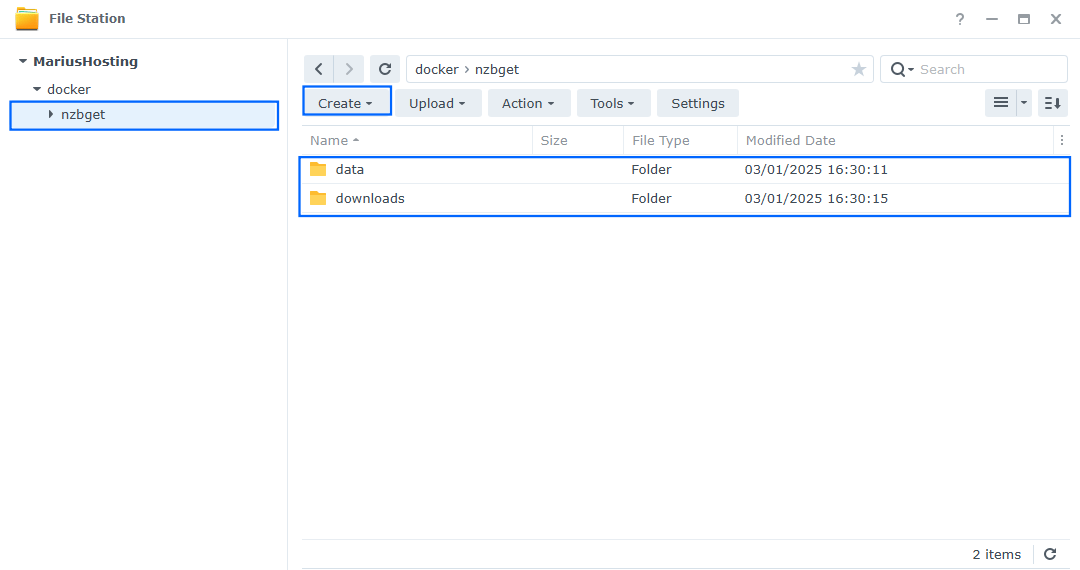
STEP 5
Go to Control Panel / Task Scheduler / Create / Scheduled Task / User-defined script. Follow the instructions in the image below.
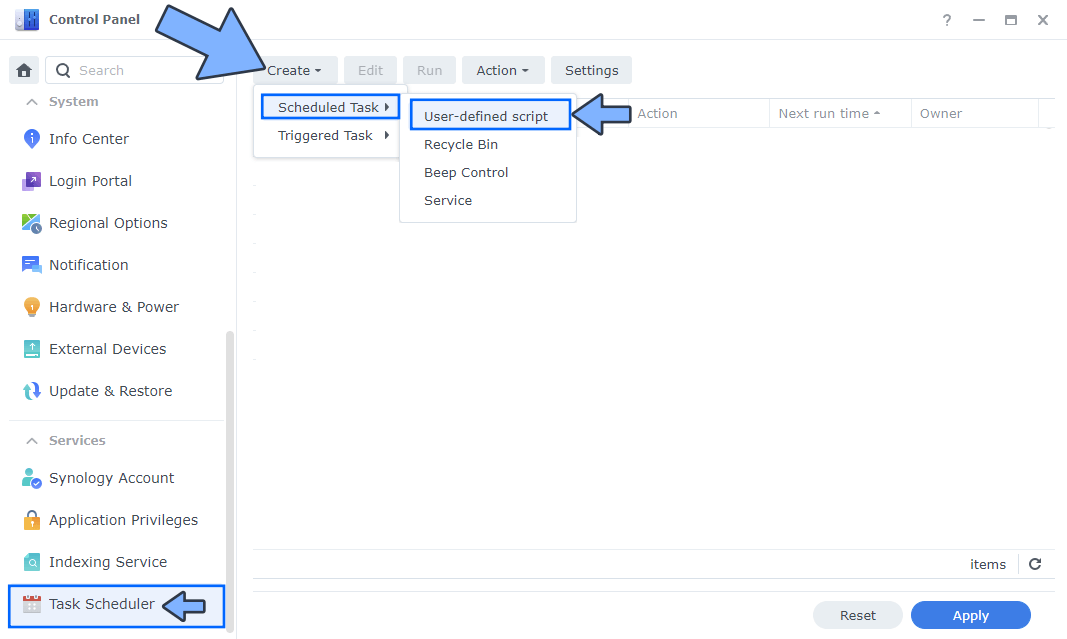
STEP 6
Once you click on User-defined script, a new window will open. Follow the instructions below:
- General: In the Task field type in “Install NZBGet“. Uncheck “Enabled” option. Select root User.
- Schedule: Select Run on the following date then select “Do not repeat“.
- Task Settings: Check “Send run details by email“, add your email then copy paste the code below in the Run command area. After that click OK.
docker run -d --name=nzbget \ -p 6789:6789 \ -e PUID=1026 \ -e PGID=100 \ -e TZ=Europe/Bucharest \ -e NZBGET_USER=marius \ -e NZBGET_PASS=mariushosting \ -v /volume1/docker/nzbget/data:/config:rw \ -v /volume1/web/downloads:/downloads:rw \ --restart always \ ghcr.io/linuxserver/nzbget
Note: Before you paste the code above in the Run command area, change the value numbers for PUID and PGID with your own values. (Follow my step by step guide on how to do this.)
Note: Before you paste the code above in the Run command area, change the value for TZ (Select your current Time Zone from this list).
Note: Before you paste the code above in the Run command area, change the value for NZBGET_USER. Type in your own username. marius is an example for a username.
Note: Before you paste the code above in the Run command area, change the value for NZBGET_PASS. Type in your own password. mariushosting is an example for a password. ⚠️Warning: Do NOT use passwords with special characters.
Note: In the code above, after -v /volume1/docker/nzbget/data:/config:rw \ you have to add your personal path to downloads. For example, I have used my personal download path folder -v /volume/docker/nzbget/downloads:/downloads:rw \ Change it according to your preferences. -v /path/toyour/downloads:/downloads:rw \
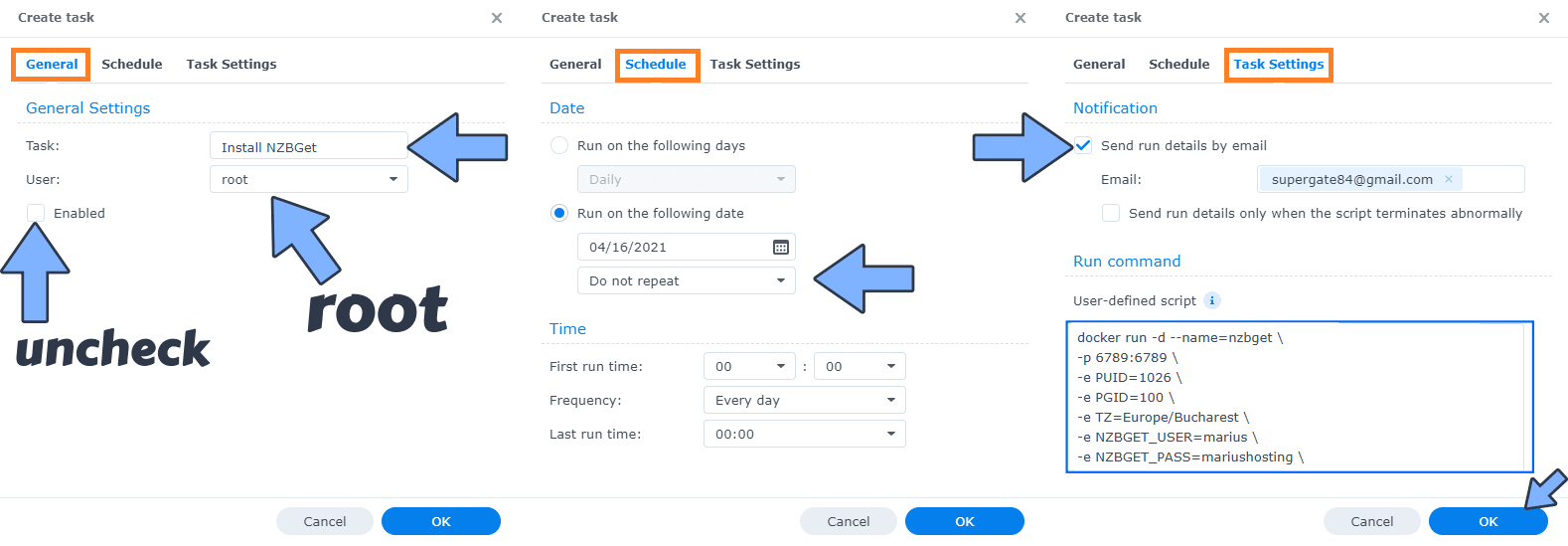
STEP 7
After you click OK on STEP 6 a new warning pop up window will open. Click OK.
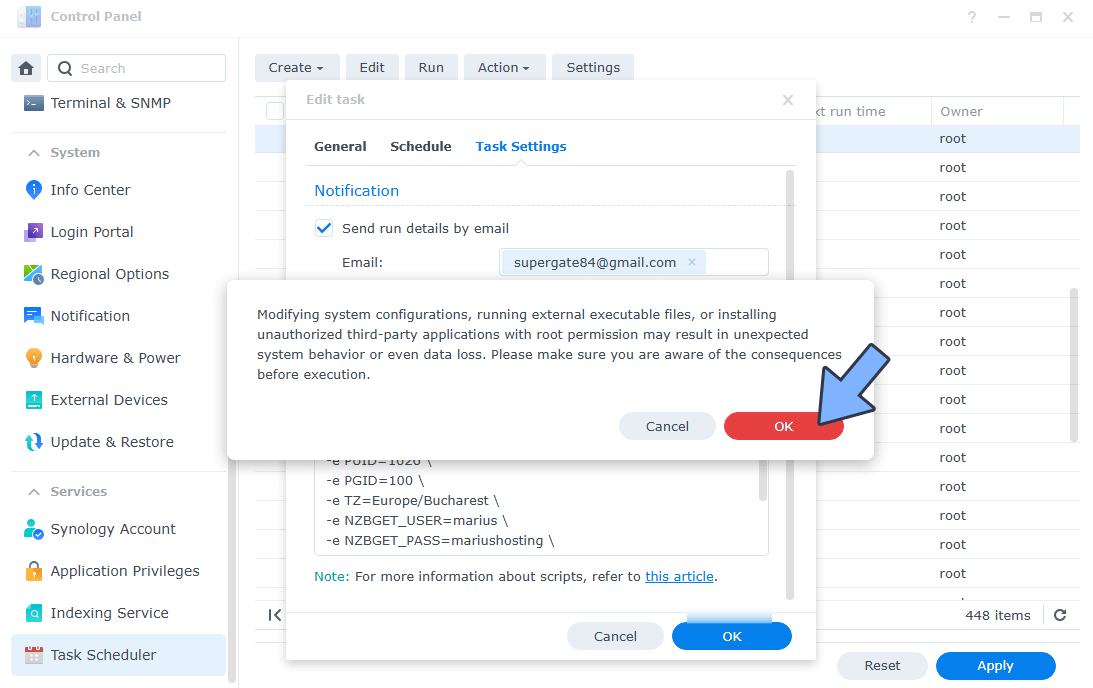
After you click OK, type in your DSM Password then click Submit. Follow the instructions in the image below.
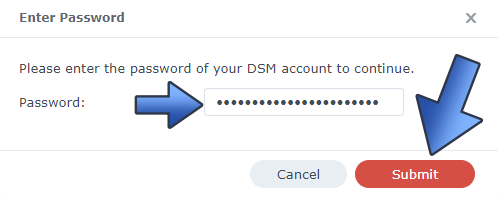
STEP 8
After you click Submit on STEP 7, select your “Install NZBGet” Task then click the “Run” tab. You will be asked to run Install NZBGet – click OK. Follow the instructions in the image below.
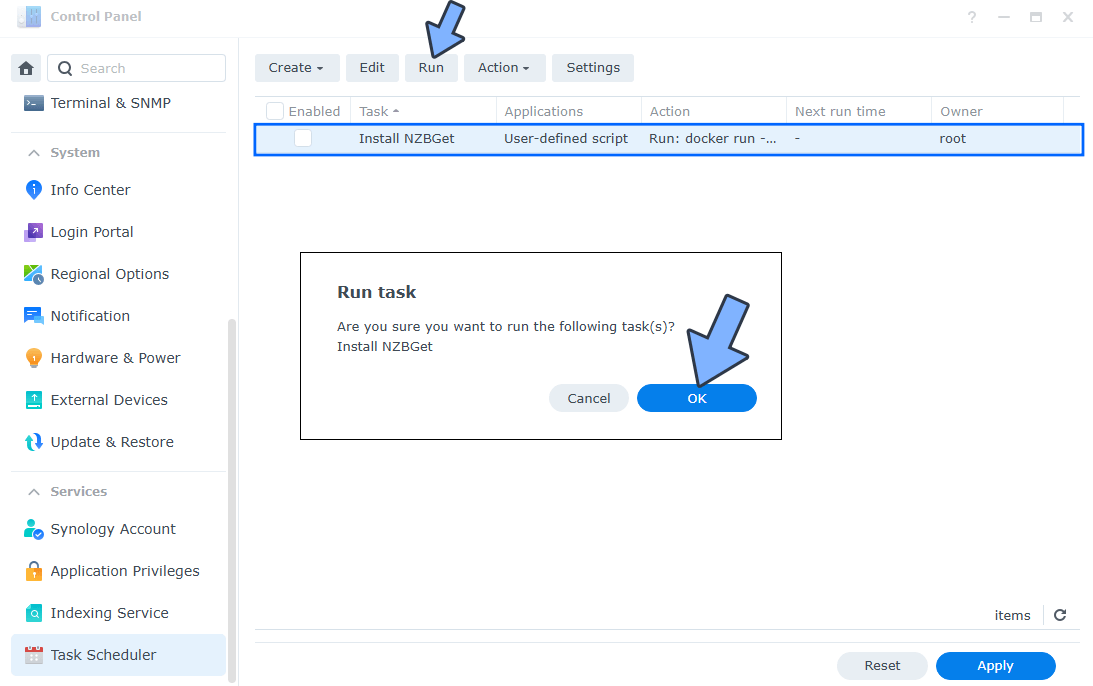
STEP 9
🟢Please Support My work by Making a Donation. Almost 99,9% of the people that install something using my guides forget to support my work, or just ignore STEP 1. I’ve been very honest about this aspect of my work since the beginning: I don’t run any ADS, I don’t require subscriptions, paid or otherwise, I don’t collect IPs, emails, and I don’t have any referral links from Amazon or other merchants. I also don’t have any POP-UPs or COOKIES. I have repeatedly been told over the years how much I have contributed to the community. It’s something I love doing and have been honest about my passion since the beginning. But I also Need The Community to Support me Back to be able to continue doing this work.
STEP 10
The installation process can take up to a few seconds/minutes. It will depend on your Internet speed connection. Now open your browser and type in http://Synology-ip-address:6789 If everything goes right, you will see the NZBGet Login page. Type in your own NZBGET_USER and NZBGET_PASS that you have previously created at STEP 6, then click Sign In. Follow the instructions in the image below.
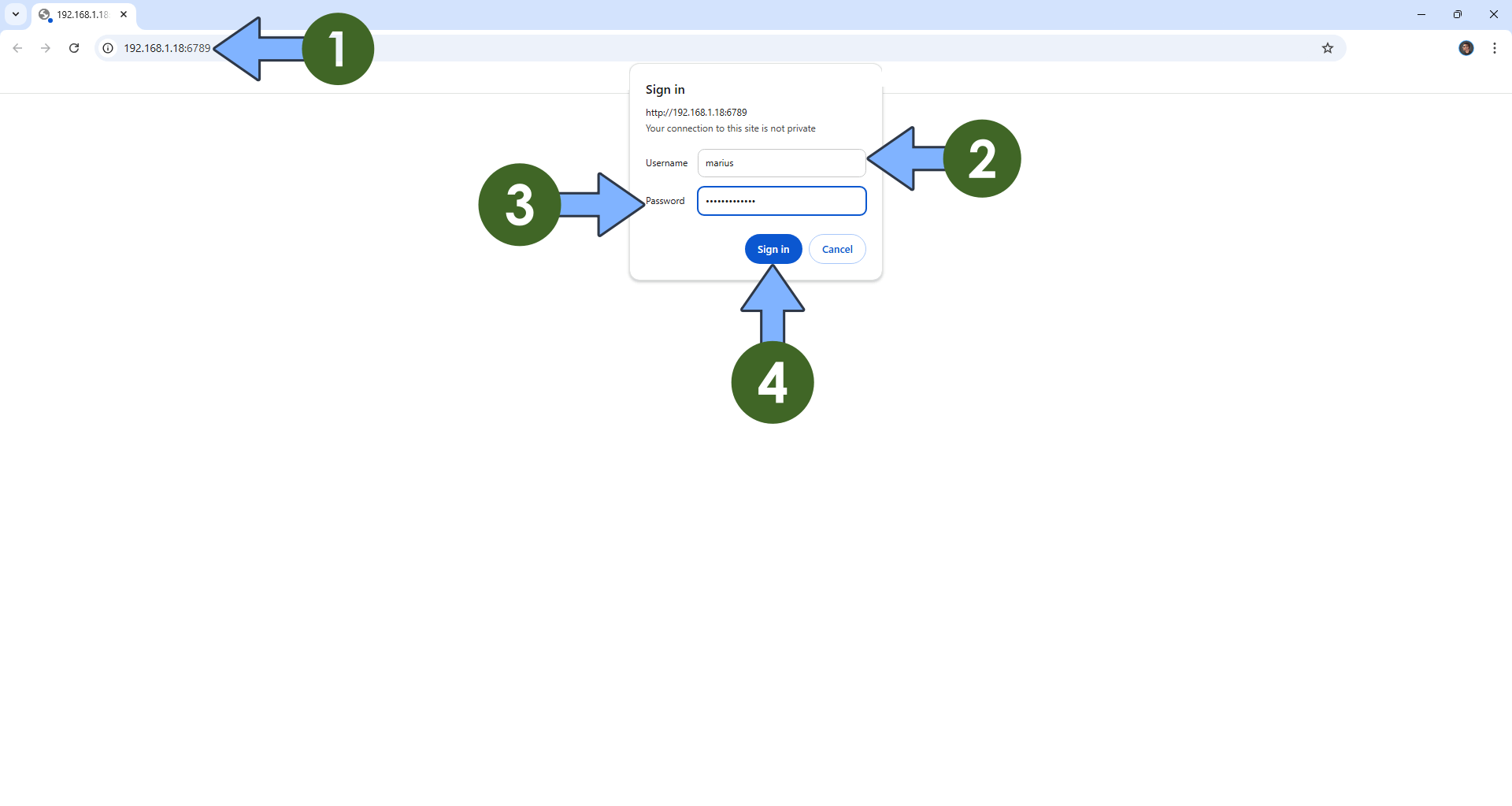
STEP 11
At the top right of the page, you can easily switch the theme to dark. Click the Setting tab to access the settings. Follow the instructions in the image below.
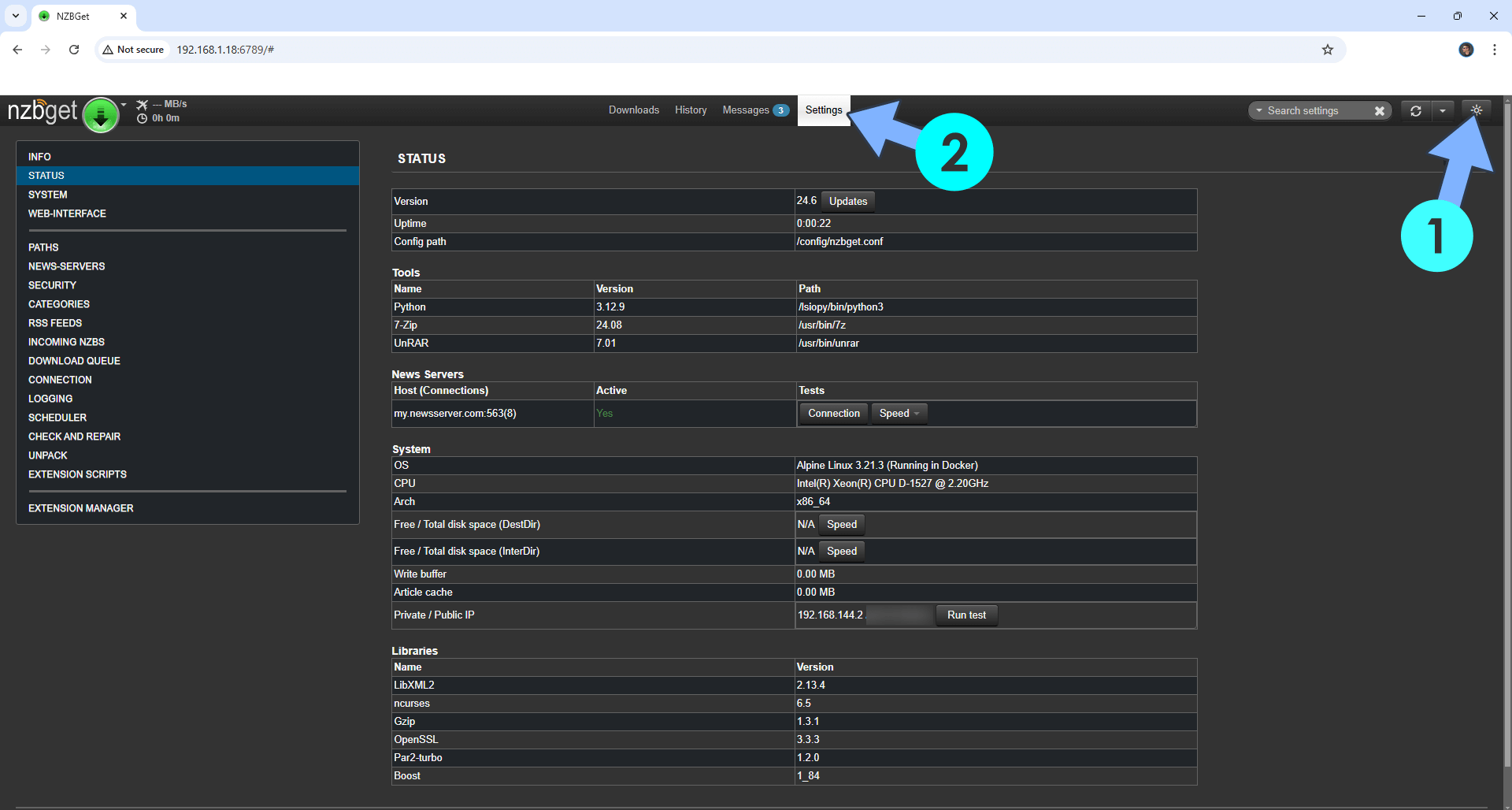
If you encounter issues by using this container, make sure to check out the Common Docker issues article.
Note: If you want to run the NZBGet container over HTTPS, check How to Run Docker Containers Over HTTPS. In order to make NZBGet work via HTTPS, it’s mandatory to activate WebSocket.
Note: If you experience permissions problems, just right mouse click on your “download” folder where you have your files stored. Click on Property, Permission tab, Create tab, user & group search for SYSTEM then add read / write to SYSTEM and click Done. Check Apply to this folder, sub-folders and files then click Save. Now try again: open your browser and type in http://Synology-ip-address:6789
Note: Your NZBGet container run in bridge network mode. If you experience connections problems remember to set your Synology Firewall in Control Panel / Security / Firewall / Edit Rules and allow IP-Ranges 172.17.0.0/16
Note: Can I run Docker on my Synology NAS? See the supported models.
Note: How to Back Up Docker Containers on your Synology NAS.
Note: Find out how to update NZBGet container with the latest image.
Note: How to Free Disk Space on Your NAS if You Run Docker.
Note: How to Schedule Start & Stop For Docker Containers.
Note: How to Activate Email Notifications.
Note: How to Add Access Control Profile on Your NAS.
Note: How to Change Docker Containers Restart Policy.
Note: How to Use Docker Containers With VPN.
Note: Convert Docker Run Into Docker Compose.
Note: How to Clean Docker.
Note: How to Clean Docker Automatically.
Note: Best Practices When Using Docker and DDNS.
Note: Some Docker Containers Need WebSocket.
Note: Find out the Best NAS Models For Docker.
Note: Activate Gmail SMTP For Docker Containers.
This post was updated on Saturday / January 17th, 2026 at 8:40 PM
